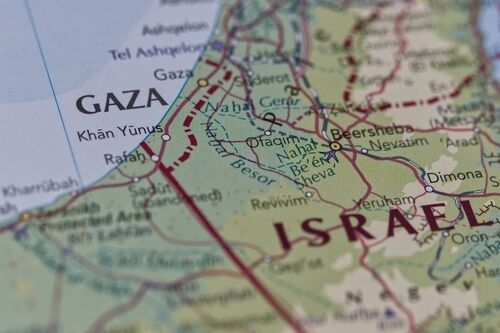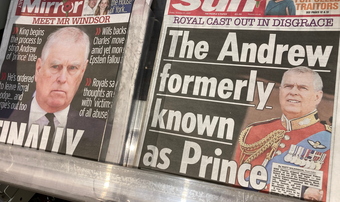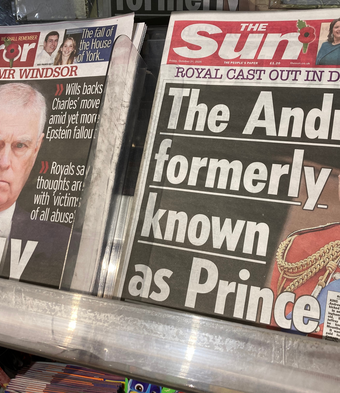Why has it taken so long to reach a ceasefire in Gaza?

At the time of writing, the Israeli cabinet is meeting to discuss whether to approve the latest deal and establish the long-awaited ceasefire in the Israel-Gaza conflict. There is widespread anticipation that the deal will be approved and that, come Sunday, the first Israeli hostages will be due to be released with Palestinian prisoners heading the other way.
As this helpful explainer from media outlet Tortoise outlines, the deal is made up of three parts: the first seeing 33 Israeli hostages returned in exchange for a thousand Palestinian prisoners, the withdrawal of Israeli troops from Gaza to a buffer zone along the border, and a significant increase in humanitarian supplies being delivered to Gaza.
The second stage would see the remaining Israeli prisoners released in exchange for their complete withdrawal from Gaza. The third stage is concerned with the reconstruction of Gaza, but at this point, the details are hazy and many would be unsurprised if the fighting resumed before it occurred.
With more than a thousand Israelis killed in Hamas’ barbaric attack on the 7th October 2023, and more than 46,000 Palestinians killed in the subsequent conflict, the ending of hostilities has been long-awaited.
But for a whole host of reasons, ranging from the influence of extremist nationalistic figures deeply hostile to Palestine, to politics and political manoeuvrings, and military considerations about the strength and threat posed by Hamas and its allies, the ceasefire deal has not been universally welcomed.
Israel’s hard right National Security Minister Itamar Ben-Gvir has threatened to resign if Israel ratifies the deal, calling it a “catastrophe”. Likewise, some in Israel went on to the streets to protest against the deal last night, arguing that Israel would be surrendering to Hamas should the deal go through, with some arguing it risks both the lives of the hostages left behind in stage 1, but also the risk of further kidnappings taking down the line.
Whilst this proposed deal offers the hope of a reprieve in the violence and hostilities, it is difficult to see a permanent and lasting peace emerging out of this ceasefire.
This is a conflict deeply mired in contrasting religious beliefs and assertions, bitter historical claims and grievances, and recent horrors. The Israeli desire for security and the threat posed by Hamas and other extremist groups within Palestine, as well as Israeli actions within Gaza and the West Bank which seemingly only furthers the recruitment of groups like Hamas seem destined to lock the two sides into perpetual conflict, hatred, and suspicion.
Not for the first time in sitting down to write this column, I found myself somewhat stumped in what to say beyond the self-evident maxim that peace is good. Reflecting this morning, these words from political commentator Douglas Murray came back to me:
“Many years ago I was introduced to one of the most helpful rules of logic: to never say or write anything the opposite of which would only be uttered by a madman. So for instance, if you are an aspiring politician do not say “We must go forwards into a new bright future” because no sane person would publicly declare “We must go backwards into a dark past”.
And when commenting on conflict and war, I think much the same could be said, for what sane person would publicly declare “we desire bloodshed, violence, and military conquest”? Yet as with nearly every aspect of life in this broken world, the reality is far murkier.
1. The logic of war
Whilst there are whole systems of thinking out there that want to reduce all of human interactions into logical models and thought patterns, humans are simply more complicated than that. People are not just logical/rational machines but are creative, emotional, religious, embodied beings with needs for wonder, beauty, and meaning.
International affairs sometimes follow logical patterns… “country X needs further resources and therefore invades resource-rich country Y”; but not always.
But, because people and cultures are different, what might seem like the ‘logical’ or ‘sane’ reason for war to one group, might seem totally ‘illogical’ to another.
Hamas’ attack on Israel on the 7th October might have seemed illogical, given the inevitable backlash it sparked, which has brought such destruction to the Gazan people Hamas claims to represent and undermined its own leadership, capacity, and capability.
But that is assuming that the Hamas leadership thinks in the same way as we do in the liberal, democratic West.
For them, a deep-seated religious and ethnic hatred against Jews, compounded by historical and material grievances, superseded protecting their own citizens.
Likewise, one could look at aspects of the Israeli government and see similar themes motivating the perpetuation of the conflict beyond what is logical or beneficial for Israeli interests.
As a Christian, I think the Bible helps us make sense of these things, depicting people as complex and fallen beings; we are not only capable of tremendous good, but also tremendous evil, with a whole host of allegiances, cravings and desires that transcend obvious logic. See Samson’s repeated playing with fire or the Pharisees’ refusal to accept the truth of Jesus’ identity despite all the evidence before them as examples.
Hence, despite peace seemingly being the wish and desire of people the world over, lasting and comprehensive peace across the globe has been elusive.
The reality is that actions make little sense to us, do make sense to the people who are doing them.
And war can pay, and pay greatly, for some. Not only am I thinking about the arms trade, but the way that exerting violent power over others can be an effective means for advancing one’s own interest.
Wars are started to advance people's claims upon more land, increased access to natural resources, or to put an end to a hostile neighbour.
The precedent for this was set long ago; Lamech’s domination and violence in Genesis 4 provides us with an early picture of the human tendency to exert force over others for selfish ambition.
Why is peace so elusive and hard to achieve?
Because sometimes war makes sense to those in the middle of it, be that for economic or military reasons, or even (as in just war theory) for moral reasons.
Both Israel and Hamas make claims about the logic of their military endeavours, highlighting their ambitions to ensure their own security and prosperity, to their wish to eliminate a hostile threat or to fight back in search of freedom against an oppressive power.
2. Peace without justice is insufficient
Now this is where the really thorny and controversial questions come in. For both sides in this debate will claim their cause is just and that there will be no peace until ‘insert your preferred option here’: Hamas is eradicated / Palestine is free.
Sometimes the calls and ambitions for peace simply overlook matters of justice. Wrongdoing and grievous harms and abuses are simply swept under the carpet so that we can all get back to sitting around playing happy families.
Christopher Watkin, in his book Biblical Critical Theory, highlights comments by Miroslav Volf which I think are helpful here: “evil must be separated from good, and darkness from the light. These are the causes of violence, and they must be removed if a world of peace is to be established.”
And when reflecting on calls for blanket non-violence he argues “one can smell a bit too much of the sweet aroma of a suburban ideology, entertained often by people who are neither courageous nor honest enough to reflect on the implications of terror taking place right in the middle of their living rooms!”
Yet “politics is the art of the possible”. In conflict resolution, there is a constant tension between what is desirable and what is achievable. Neither side will fully achieve their way: some element of forgiveness and tolerance is required to move beyond the entrenched conflict.
It is here that Christian faith in a final judgement from a just God is so important: Watkin writes: “Final judgement is not merely a from and regrettable necessity; it is a keystone of social cohesion in the present… the Bible’s picture of final judgment means that justice will be exhaustively done by God in the end, and so does not have to be exhaustively done by us right now.”
While deep and lasting peace may not be sustainable in this life, it is this confidence in the Gospel which can move the conversation onwards...
3. The greatest conflict resolution of all
Watkin also writes, “human beings created in the image of God have a wonderfully stubborn capacity for godlike actions of love, compassion, and generosity. Human beings who have chosen the way of autonomy have an ever-renewed capacity for unreason and brutal violence.”
In other words, Christian doctrine teaches that there are, often, evil motivations which lie behind the decision to go to war. Evil is a reality. (It also shows the importance of substantive defence and security measures).
Yet let us also recognise the capacity within all humanity, made in the image of God as we are, towards actions of beauty and goodness. Peace cannot be written off as impossible. Nations and peoples cannot be written off, vilified, or demonised – let us pursue paths towards redemption and reconciliation not domination and exploitation.
How is that possible? Well, by remembering the blood of the lamb, the one who did not consider equality with God something to be used to his own advantage, but humbled himself by becoming obedient to death - even death on a cross! God presented Christ as a sacrifice of atonement… to demonstrate his righteousness… so as to be just and the one who justifies those who have faith in Jesus.
Peace, despite its appeal, does not always seem like the logical choice to those in the midst of confict.
But defying the logic of this world is something that our God does. He chose the foolish things of the world to shame the wise; God chose the weak things of the world to shame the strong.
Does that make sense in conflict and war? Perhaps not.
But it’s the logic of the Kingdom of God.






